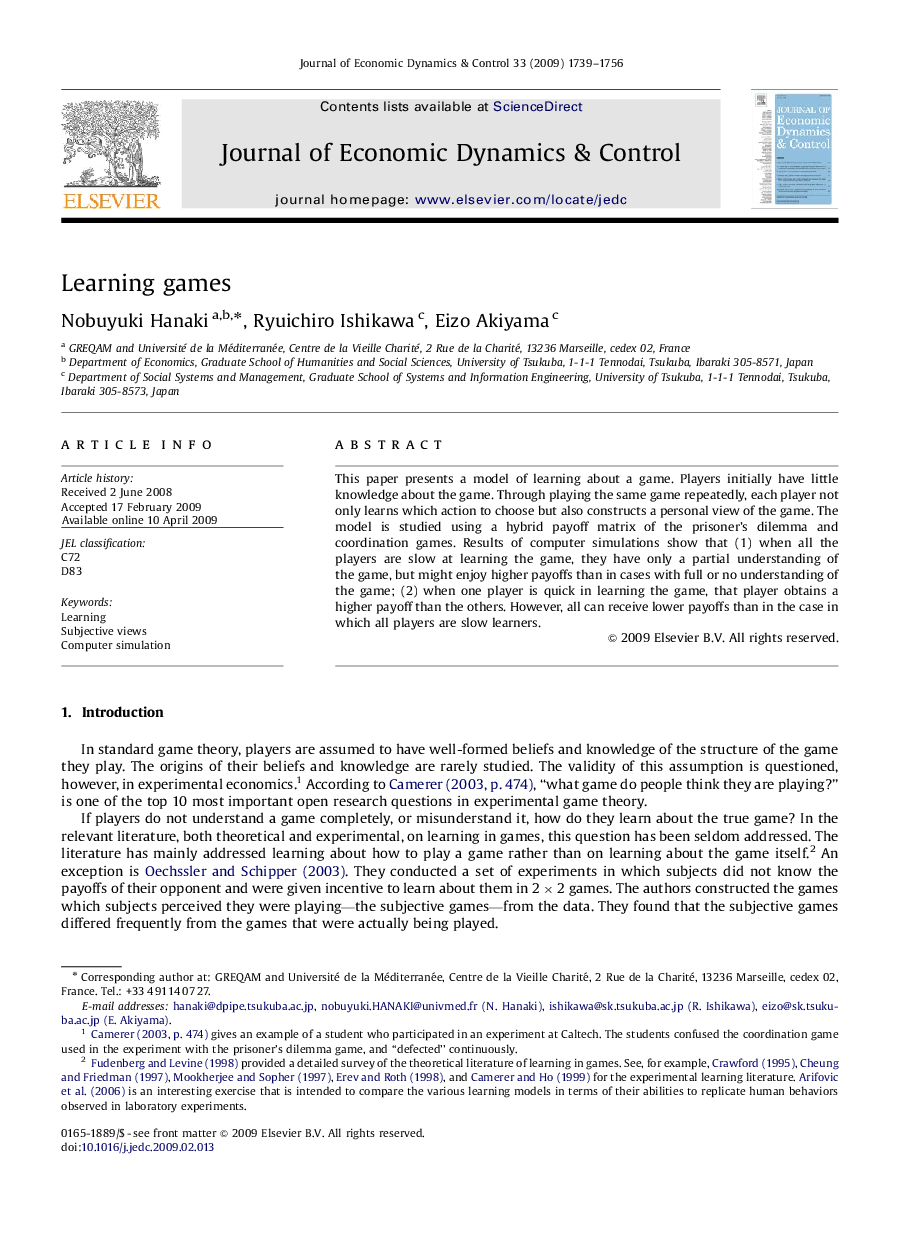| Article ID | Journal | Published Year | Pages | File Type |
|---|---|---|---|---|
| 5099009 | Journal of Economic Dynamics and Control | 2009 | 18 Pages |
Abstract
This paper presents a model of learning about a game. Players initially have little knowledge about the game. Through playing the same game repeatedly, each player not only learns which action to choose but also constructs a personal view of the game. The model is studied using a hybrid payoff matrix of the prisoner's dilemma and coordination games. Results of computer simulations show that (1) when all the players are slow at learning the game, they have only a partial understanding of the game, but might enjoy higher payoffs than in cases with full or no understanding of the game; (2) when one player is quick in learning the game, that player obtains a higher payoff than the others. However, all can receive lower payoffs than in the case in which all players are slow learners.
Keywords
Related Topics
Physical Sciences and Engineering
Mathematics
Control and Optimization
Authors
Nobuyuki Hanaki, Ryuichiro Ishikawa, Eizo Akiyama,
